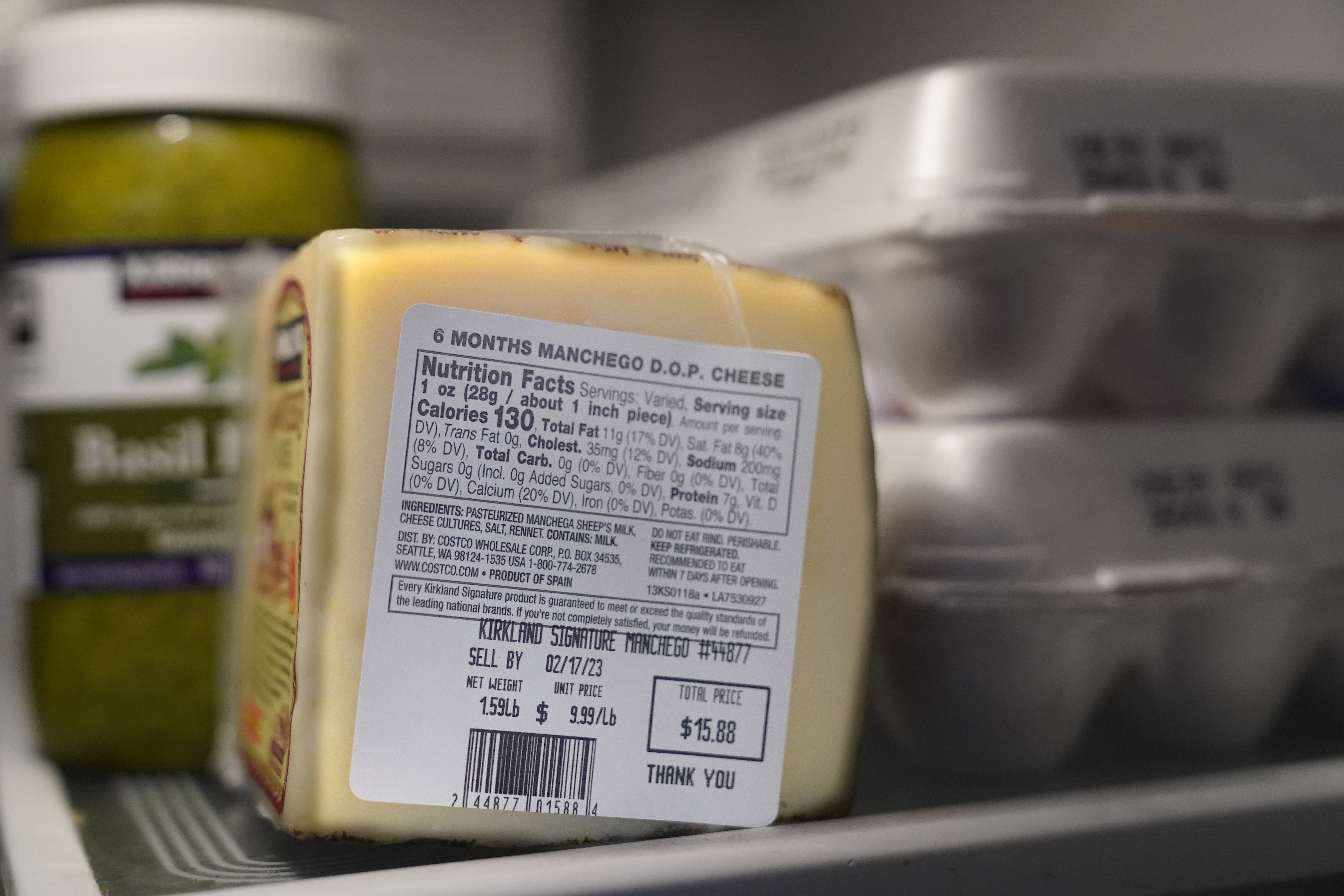California bans food ‘sell by’ dates. Will it save you money without getting you sick?

The new law bans food items from carrying “Sell by” labels. Instead, the law limits most labels to two options: “Best if used by” and “Use by.” (Charles Rex Arbogast / Associated Press)
By Sandra McDonald
Dec. 4, 2024 Updated 7:57 AM PT
• A new California law further regulates food safety labels and will take effect in 2026.
• “Sell by” labels, used by grocers to help rotate stock, will be banned.
• “Best if used by” indicates best food quality, while “use by” indicates food safety.
There you are, reaching on your tiptoes in the grocery store to grab the milk on the highest shelf marked with the latest date. It’s worth it, you think, to get milk that will stay fresher longer. … You don’t finish the milk by that date, of course, so you dutifully pour the remainder down the drain the day after.
But that “sell by” label doesn’t indicate when your milk will go bad — it’s to help grocers rotate stock. Your milk was fine. Now you’re back in the store, paying for more.
With the exception of infant formula, date labels on packaged food are not federally regulated or required, leaving it up to manufacturers and the state to determine what labels are necessary. An old state law suggested putting dated labels on foods to help consumers know when their food has gone bad, instead of confusing, grocer-focused “sell by” labels. A new California law requires them in an effort to reduce the food waste that Californians produce — 6 million tons of it every year, according to the state Department of Food and Agriculture.
The goal of Assembly Bill 660, written by Assemblymember Jacqui Irwin (D-Thousand Oaks), is to bring uniformity and common sense to dated food labels for consumers. Doing so will require grocery retailers and manufacturers to make changes, said Daniel Conway, California Grocers Assn. vice president of government relations.
{snip}
